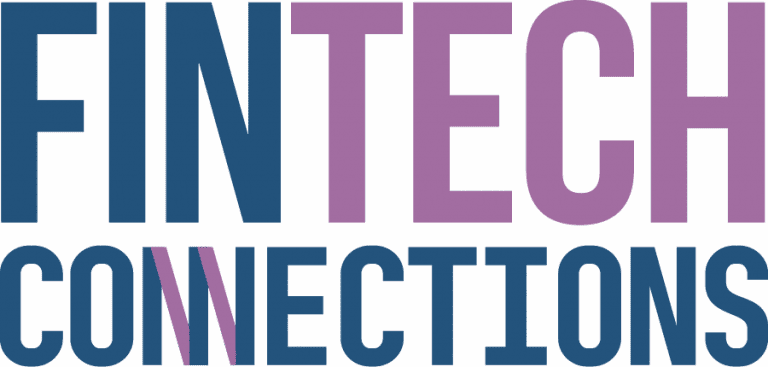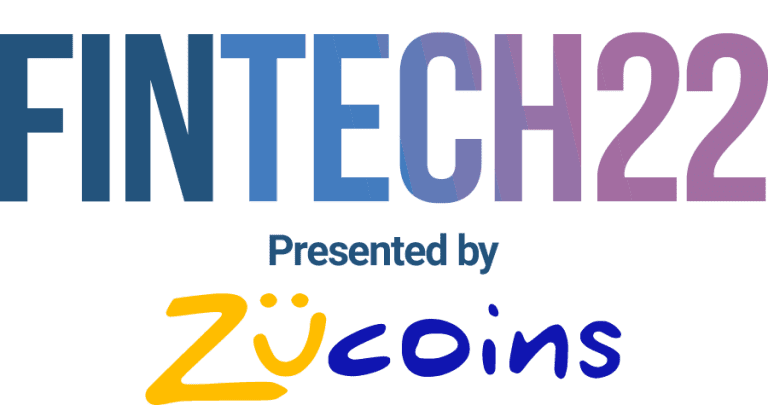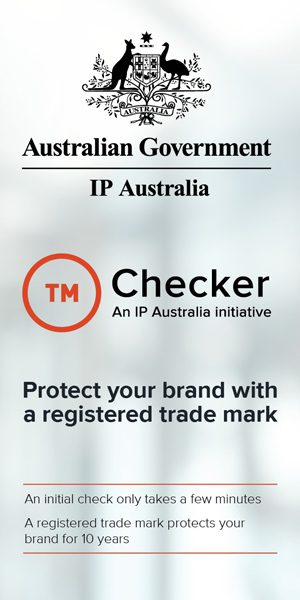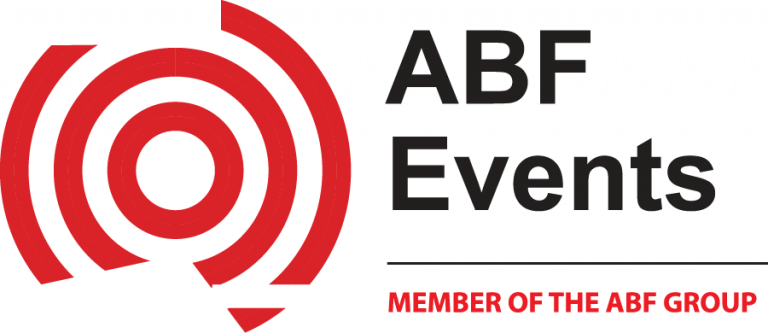The same way software has been eating the world in the past decade, we are now at the threshold of a new major paradigm shift. The transition of Web 2.0 to Web 3.0. Moving from centralized to decentralized platforms, in the process creating a lot of wealth, disrupting incumbents and unleashing a lot of innovation. To dive deeper into this topic, we sat down with Bryan Ventura, a senior lawyer at MinterEllisonRuddWatts and angel investor to look at the current state of blockchain and cryptocurrencies in New Zealand.
Bryan started his crypto journey by reading the bitcoin white-paper, which changed the course of his career. Today, he invests in startups, supports fintech companies through his law practice and is an active participant of the New Zealand blockchain ecosystem.
In this interview, Bryan talks about his career, what led him to Bitcoin and then to Web 3.0 in general. We cover topics like what’s the current state of the Web 3.0 ecosystem in New Zealand, who are the early winners, what challenges exist today and what keeps him excited about the future alongside many other topics. In fact, we even touch on the brain drain phenomenon, COVID’s impact on the startup ecosystem and the most exciting initiatives and use cases for blockchain in New Zealand.
The interview covers these main topics:
- Bryan’s Journey and Introduction to Blockchain
- Web 3.0 Ecosystem in New Zealand
- Early Success Cases of Blockchain and Cryptocurrencies in New Zealand
- Opportunities and Challenges in the Web 3.0 Ecosystem, in New Zealand and across Asia Pacific
- Brain Drain and Developer Shortage among New Zealanders
- The Future of the Web 3.0 Ecosystem
Transcript
Bryan’s Journey and Introduction to Blockchain
Viktor: Hey Bryan, let’s start with a brief introduction about yourself, your profile, why did you start what do you do now?
You mentioned the blockchain Association earlier, it would be great If you can summarize your journey. How did you end up working with this particular technology and in that space?
Bryan: I’d be happy to start with my background. I’m a commercial and financial regulation lawyer at MinterEllisonRuddWatts. I’m a senior associate there and I focus on what they call financial services e.g. investment funds. We also work with startup companies, particularly startup companies in the FinTech space. We often work with some of the other service providers in the industry, like trustee companies, custodians, and the very traditional financial industry. But then, the interesting thing is we have a really innovative focus. We work with a lot of the disruptors of the financial industry, like within ticks and like the cryptocurrency companies, which the industry calls virtual asset service providers. A lot of these disruptors are pretty much reconfiguring existing business models, existing products and services. But making it easier for consumers, making it more attractive and sometimes generating better financial outcomes as well. So that’s a space that I work in. I also work with some banks. So very, very wide range.
How did I get to web 3.0 and blockchain? It started about five years ago, I would actually have started eight years ago when I heard about the Silk Road. I can’t confirm or deny if I ever used it. But it exposed me to Bitcoin. And I really delved into Bitcoin in 2016, when I finally decided to read the Bitcoin whitepaper, and it blew my mind. I dove down the rabbit hole, bought some Bitcoin in 2016. And then from there, kind of rode the ICO wave in 2017. And I decided around 2017 that I really wanted to become a part of the crypto space, both as a lawyer and also as an investor. And so the first crypto job that I did was actually for this infamous German entrepreneur, who lives in New Zealand, as he was having a lot of legal issues with the US government. He was doing an ICO at the time and building a content monetization platform that was going to use an ERC 20 token as the utility currency, the utility token. And the idea was that their token can be used for micropayments for content producers. There was a way to kind of disinter-mediate a lot of the middle people involved in the media at the moment. Unfortunately, that didn’t fly because of political reasons. But it really became the bedrock for what’s become my cryptocurrency legal practice. Since then, I’ve worked with a lot of New Zealand startups looking to commercialize their blockchain ideas and create cryptocurrencies in the process. It’s really allowed and it’s kind of forced me to understand the technology a bit deeper than probably some other lawyers would need to. Because I would say a lot of the issues that are involved with cryptocurrency companies are not just legal, but also commercial and technological. And you can’t separate one from another.
As it comes to cryptocurrencies, I have been investing in cryptocurrencies for five years, you know, I had some good times in 2017, followed by bad times in 2018, like everyone else. And then now it’s kind of been good. I’ve also been investing in startups in this space, like one prominent NFT platform. And from there, that’s kind of opened up my angel investing career. Because it led me to invest in other industries, other technologies, like medicinal cannabis, EdTech, digital content distribution and other digital disruptors of traditional business models.
Web 3.0 Ecosystem in New Zealand
Viktor: Thank you very much for sharing your journey from the very beginning, how you ended up in that space and how that space also gives you opportunities to invest into other startups. That was quite interesting. I’m curious since you’ve been actively investing and talking to key players in the ecosystem, what’s your overview of where the Web 3.0 space is today?
As you look at New Zealand, would you say it’s very developed? Would you say there are a lot of players? Is it upcoming?
Perhaps you have noticed how in the past 10 years, there has been an increase in the number of new crypto players? After all, we see the space getting hotter, especially in North America, but how is it in New Zealand and around New Zealand, e.g., in Asia Pacific in general?
Bryan: That’s a good question. New Zealand tends to outperform its size, in a lot of different things. After all, the country has only 5 million people. And it’s at the bottom of the ocean. It’s hard to get to because not many people travel to New Zealand. Because it’s so small, it’s a really good testing ground for innovation. And New Zealand culture is actually really open to innovation, to testing boundaries. It’s in our nature. And I would say New Zealand’s crypto and blockchain space is well above what you would expect for a country of its size. There are some aspects that I think are well advanced. For example, there is a consortium of companies, really prominent New Zealand companies, around 30 of them at the moment. And not just New Zealand companies, but actually government agencies. They formed a consortium and they’ve set up a legal entity and a set of rules for them to share data that they input onto the blockchain. And the idea will be that the data that they’ll input will be shared. It will be part of an ecosystem that will solve data provenance issues in the agriculture industry, in the trade industry, and also for export. That consortium is called the Trust Alliance New Zealand. It’s all public. And actually the firm that I work for, MinterEllisonRuddWatts , helped set up a legal structure for that.
I don’t think any country would probably be able to set up something like that, at least I haven’t seen anything of that scale anywhere else. I think it’s the uniqueness of being really innovation driven. And also, the willingness and the culture of different organizations that are actually competing against each other. But they see the value of blockchain, and are willing to kind of let their guard down to try and work together. I think that’s one really good example. There are a lot of ecosystems in New Zealand that are what you probably call incubators of blockchain technology. The most prominent one, to me is this, this group called Centrality, it has around I’d say, maybe close to 30 different portfolio companies, a lot of those portfolio companies using blockchain technology or they’re otherwise technology driven.
I think most startups have raised capital and they’re also solving different aspects, different problems in society, not to mention, the potential to interact with each other once they actually scale. They can interoperate, because they’re all using Centrality’s networks. Over time they also have potential to scale overseas. So that’s one really exciting ecosystem. There’s a lot of what I would consider virtual asset service providers, who are kind of the gateways for people to buy and sell crypto using fiat currency. And I think they are another good example of the innovation here in New Zealand.
Then you’ve got probably the more traditional technology companies like IBM, Microsoft, Amazon, who just from what I’m hearing are trying to provide probably what you call more permission based blockchain solutions for institutions. They probably wouldn’t be involved at all with anything to do with cryptocurrencies.
And the last group that comes to mind is this group called Techemy. Techemy is probably what you call a crypto investment bank. They provide a lot of different types of financial services like wealth management, investment banking, helping companies raise capital, and they’ve got a cryptocurrency exchange. I think they’re probably a good example of a company that has a really strong thesis towards the value of cryptocurrencies. Techemy thinks that they can disrupt traditional financial services by offering cryptocurrency related services.
Viktor: If you’re to start a crypto company now, I have noticed in the states there are a lot of funds that are specifically focused on investing capital in web 3.0 startups. Which is a quite different VC investment than the traditional sense venture model because it’s a mix of equity, but also purchasing some tokens. So I’m just curious if the company that you’re talking about also invests in startups following similar logic?
Bryan: That’s yeah, that’s a really good point there and you’ve nailed it. They do that as well. They provide investment capital. And actually, I should add that Centrality has a similar business model as well. They provide seed capital, investing in different, both equity and tokens, as far as I know, but then they also add a layer of technological and incubation support.
Early Success Cases of Blockchain and Cryptocurrencies in New Zealand
Viktor: Nice. It seems like the ecosystem is quite vibrant given the size of the country. There is a lot going on, there are already some established players. So I’m just curious about that. Who are the biggest / most well known, either startups or organizations that have turned out to be early success cases. That will be very interesting to know, because quite often it’s unclear where those companies are based. Perhaps there are a lot of quite popular companies that people just do not know are based out of New Zealand.
Bryan: Yeah, that’s a really tricky question. That’s part of the challenge with cryptocurrency or with blockchain. For me, the most prominent one that comes to mind is this company called VeVe. They’re a global platform that sells what they call licensed NFTs. And they have licenses with companies like Marvel, with DC Comics, with Viacom. Like just this week, they’ve launched limited edition 3D models and augmented reality models of the USS Enterprise which are NFTs. And they operate a marketplace in their app as well, for people to buy and sell those NFTs if they can’t buy them on the original drop day. I think they have about 100 licenses lined up. And they recently launched a range of Marvel Comics, which are really similar to the Marvel Comics that Marvel distributes through Marvel Unlimited. And I think it’s a really good example of the innovation available using blockchain technology. So VeVe is a really good study case. Additionally, I’m thinking about some of the companies in the Centrality ecosystem. There’s a really good one, it’s called TrackBack. And actually full disclosure they are one of our clients at Minter EllisonRuddWatts, and they’re actually the technology operator of the consortium I mentioned earlier, called Trust Alliance New Zealand. TrackBack is pretty much the company that provides the network to the consortium members. In my opinion, that company has a potential to scale its consortium model offshore. It can loop in offshore organizations with its consortium here in New Zealand, or it could even build separate consortiums on a per country basis.
And there’s a whole lot of other really interesting companies within this Centrality ecosystem. Maybe the other one if you need another example. It’s called what they call Centrapay, and they provide payment solutions for merchants and consumers. Let’s say, you Viktor, had some cryptocurrencies which you wanted to use to buy a can of Coke. You could go to a participating merchant and use a QR code, pay using your crypto, and then the merchant on the other end will be paid and get fiat currency. And in between will be the Centrapay service.
Viktor: Yeah, that’s quite a diverse set of different yet interesting companies. I think VeVe should be one of the biggest in the region, not just in New Zealand. There are, of course, some really big players in the space. The NFT space is very, very hot. VeVe seems to be one of the bigger players in Asia Pacific, is that a correct assessment in your opinion?
Bryan: I think yeah, from what I’ve heard, I don’t get to speak to too many people in the Asia Pacific region about VeVe, just from what I’ve heard about them in general. It’s definitely got a global reach and its use case is not just for crypto enthusiasts. It’s a consumer app. And it could be pretty much like the next TikTok, because it has social media functions as well.
Opportunities and Challenges in the Web 3.0 Ecosystem, in New Zealand and across Asia Pacific
Viktor: I actually used it very early when it just came out. And I know there is a community in Indonesia that uses it quite a bit. So definitely, it has reached a lot more regions outside New Zealand. But thanks for sharing that.
On another note, what’s working well in the ecosystem and what is not?
Every ecosystem needs talent, funding, success cases, a vibrant community and many more elements. So I’m just curious, what do you think works well and what’s missing? Or what can be better?
Bryan: Yeah, I mean, Viktor, you know better than most, you’re a founder, and you’re COO of your company. And I think, I mean, the challenge is talent at the moment. Most probably you are experiencing the same thing. I’m happy to go in and answer your question. But is that what you are seeing in your region?
Viktor: Yeah, definitely talent is a big challenge. But not only as it relates to web 3.0, talent is always a challenge across everything, in the whole startup ecosystem. It’s always been and it always will be. But I’m just curious about the Web 3.0 space, and when you speak of talent, are you referring to engineers? Or perhaps overall talent?
Because I think the ecosystem has reached a maturity point that allows for non-technical people to start operating. It wasn’t like that seven, eight years ago, if you wanted to do anything with Web 3.0, I think it would be incredibly difficult if you were not a developer. I think things are changing. So I’m just curious, when you speak of talent, are you referring to engineers? Or in general that there is a lack of maybe founders, or perhaps no business people that are interested in that space? What’s your opinion?
Bryan: Yeah, 100% agree with you on that. I think the industry’s evolved to a point where non-technical non-product focused founders can drive web3 startups. There is a massive shortage of engineers. The CEO of Centrality, Aaron MacDonald mentioned that if he could hire 50 more engineers tomorrow, he would. I think that might be a global issue. Apart from that, I’ve seen more offshore base founders migrate to New Zealand, they probably find the lifestyle here better. Maybe they find some of the other issues like politics more balanced here. And I think that’s helping the founder pool in New Zealand. Yet, I think anywhere I speak to investors, they usually would argue how there is a shortage of founders in New Zealand. And that might be the same in your region as well. What do you think?
Viktor: Let me focus on Southeast Asia, because Asia Pacific, covers China and India, which are on their own massive markets. But in Southeast Asia, I think there are definitely a lot of founders nowadays. There are definitely a lot of new startups, I think, in different markets, you’ll face different kinds of talent issues. Like Vietnam and India are very good with tech talent. But that’s not necessarily the case in Indonesia, Thailand, or the Philippines. So depending on where you are, you kind of have different kinds of talent. Like in the Philippines, you will find a lot of people out there focused on support, like service based industries, because everyone speaks English so fluently, and the BPO space has exploded. In turn, such sectors are really great there. Vietnam is becoming more and more trendy for developers. And also I recently read that actually, a really high percent of the population in Vietnam uses crypto in comparison to any other market, which is a very interesting thing to note, because it’s still an emerging market.
To summarize, yes, there is definitely a shortage of talent, but it’s a different type of talent across different markets. I think in Singapore, you don’t necessarily have a shortage of talent. I think you have all the talent. The challenge with Singapore is that it’s incredibly competitive. That happens because in Singapore, every large organization would have their regional headquarters located here. So new founders would compete with Facebook, Stripe, Google, and everyone else for talent. Not to mention, all the large and well funded regional startups. That’s the main challenge with Singapore. There is talent, but it’s very expensive.
Brain Drain and Developer Shortage among New Zealanders
Bryan: Yeah, that’s really good to know, Viktor. I would say there wouldn’t be a shortage of capital early on. But I would say, maybe it’s still a bit of a shortage of capital at the later stage. At the angel and seed stage, I think, New Zealand has enough capital, but we’re slowly building our venture capital stage capital infrastructure. I think that gap is being filled. We do get a lot of interest from Australia, a little bit from Singapore, and on odd occasions from Silicon Valley, to fill the later rounds. But yeah, I think capital is probably the least of our worries right now. And I think, what New Zealand probably had a problem with before COVID-19 was what they call the “brain drain”. Kiwis, New Zealanders are naturally explorers. The tradition would be, once you do a few years of work out of school, out of university, you go and do your overseas experience. Either in the United Kingdom, or Europe, and on odd occasions, it will be in the Asia region, or maybe even to New York. Build your experience, and maybe return after 10 years to start a family. And that brain drain actually was a big infrastructural issue for New Zealand, in terms of human capital. But I think with a lot of New Zealanders coming back to their home, because of COVID-19. Now, that’s less of an issue. Hopefully, once the pandemic is a bit more under control, we won’t see the same brain drain happening in the future, because I think, just infrastructure wise, it’s really important for New Zealand.
Viktor: Are there any incentives that come to mind for foreigners to actually move to New Zealand like for tech talent or founders, you know of? Are there any programs that are designed to attract talent? Because, more and more countries are releasing digital nomad visas nowadays. All kinds of schemes that allow you to enter new geographies with relatively low effort and be based there for a while, pay lower taxes, you know, and all that. So I’m just curious, is there anything like that in New Zealand?
Bryan: Yeah. Good examples, there is a solution that New Zealand does have, which is actually it’s kind of just been started. It’s called the Edmund Hillary Foundation program for overseas innovators. And it’s a pathway for them to get New Zealand residency. And I think the program has been successful. I have come across some really impressive people from overseas, mostly from the US using the program to move to New Zealand. But I would like that program to just continue to scale, because I think that’s a good pathway.
The Future of the Web 3.0 Ecosystem
Viktor: Cool. Well, good to know, thank you very much. Maybe, after this conversation, you can also send me the links of all these organizations and programs so that we can include them in the interview, because I think they’ll be helpful for everyone. And another another, or I guess, my final question would be as it comes to what excites you most today?
What’s next in your view? What exciting innovation comes to mind? Or, you know, some development that’s been happening for a while and only now is going to become reality?
I’m curious about your views on that.
Bryan: How much time do I have? I’m kidding. Back to Web 3.0.
I think it solves the trust and provenance problems that a lot of industries face. And I think it also dis-intermediates existing industries, verticals. And I think that two main use cases for it, the provenance and single source of truth of data, and the provenance and single source of truth of value. And who controls that value. You see that within NFTs. It changed our concept of property. And it’s crystallized the concept of digital property now, and I think its use cases are endless. It’ll provide solutions for digital identity, which I think is a really big issue. One of my legal practice areas is anti-money laundering law. And the KYC burden on companies is so restrictive, expensive, and inefficient that it causes economic inertia. And it’s also potentially uncompetitive because large companies can pretty much silo existing customers. Because the cost for customers to move to another provider is too big to have to undergo KYC with that other provider. So I think digital identities are another massive use case for Web 3.0. And then with the supply chain. I think that’ll be useful not just for B2B, but also for B2C. For example, if you have ever bought Manuka Honey, it’s a type of honey that’s unique to New Zealand, there’s actually more counterfeit manuka honey in the world than there is manuka honey. And it’s quite hard for people to know whether they’re buying genuine manuka honey. It is valuable because there’s a lot of legit medicinal benefits to it. It tastes great. Additionally, it comes from a country that is generally considered a clean and green country. But because of the counterfeits of manuka honey, it’s quite destructive for New Zealand producers of manuka honey, and it’s quite destructive for the industry. With Web 3.0, you will be able to find out for sure that the honey in your store is actually genuine manuka honey, which I think will be really valuable for consumers. So supply chains are another one.
And then of course, payments. Because, Viktor you would know, much better than me, that more commerce is moving online, our lives are moving more online. It just makes it important for us to be able to transfer value safely, online as well. I think the payment solutions that Web 3.0 is unleashing right now are really important for e-commerce to grow. I think it’ll be really hard for e-commerce to scale and reach transformative size without digital payments moving at a similar pace. Yeah, those are the things that are really keeping me excited. Then I can go on about DeFi, which I think is really good for consumers like you and me. It’s just a matter of time until regulators catch up. Regulators upskill and learn about the issues with DeFi and they start to regulate DeFi but the pace of innovation is quite fast. We may very likely encounter a crypto winter as a result of that.
There’ll be DeFi providers who will come out of that, who will be regulated really, really similarly to existing financial institutions. I am bullish about DeFi, but there are massive headwinds ahead.
Viktor: I think it’s quite unpredictable. We also see how different governments look at the entire sector overall. We have countries that aggressively try to control it, stop it, change it, and countries that embrace it? So it’s quite interesting. Yeah, you’re definitely right, that we don’t know how things are going to go. And even in my day to day work, because we are in the business of helping companies go into emerging markets, we see examples of more traditional players in the Fintech space struggling to get licenses in new markets.
What I have observed in many markets is that it’s not about the technology, but it’s about who’s going to bring and monetize that innovation. A lot of governments would rather have a local entrepreneur replicate a given concept instead of letting foreign founders operate in their market. In that way, they position the local founders like the innovation comes from that country. So that their market captures the upside, rather than someone located abroad. So yeah, that’s definitely something we have seen in many emerging markets. We don’t know how things will develop. But it’s definitely an exciting time.
Great talking to you Bryan, I learned a lot, just by listening to you. Everything that you described, and you’ve been through is fascinating. In turn, I do think it will be quite valuable for other people too. Is there anything else you would like to add? Anything else that comes to mind that you find valuable?
Bryan: Yeah, I’d love to share. I mean, I’m really keen to find out what’s really keeping you excited about Web 3.0 and about technology? Because I learned so much from you as well, Viktor.
Viktor: I’ll tell you one thing that I feel it’s not that intuitive, but it’s gonna be really big. It’s the same thing with software. When software was eating the world, in the beginning, you needed, a very technical team in order to implement applications that are actually useful and scalable, and that worked well. What we’re seeing today is that with the no code movement, we are witnessing all kinds of people that don’t have any technical background, that they’re suddenly able to build quite sizable businesses, or at least test concepts, grow them to a certain level, and only then bring in an engineering team.
Imagine when no-code gets applied to web 3.0 and all those believers around the world that are not necessarily technical, are going to be able to bring innovations and develop interesting applications. I think that would be quite interesting. I think it presents a lot of complexities. Simplifying web 3.0 is going to take a while. In order to build no code solutions, you will need to make each solution extremely simple and easy to use.
But yeah, that’s something that excites me. And I think that’s an area that I personally pay attention to. And I hope that there’s going to be a lot of interesting things coming out.
Bryan: Yeah, I agree. I agree with your point. I don’t know enough about no-code. I know a little bit about it. But I think you make a really good point about its value. And I think it’ll really open up, I guess, our “founder pool”, so to speak. I agree.
Viktor: Yeah, a lot of stuff is happening. In fact, it’s quite difficult to pay attention to everything. There’s so much development in so many different sectors. Especially in the Web 3.0 space, what happens is that every exciting organization has their own community, their own discord or slack. You just can’t be everywhere. You can’t pay attention to everything, in turn, there is so much noise as well. Just figuring out what sources of information to follow, and what not to is hard. How to make sense of all that? It’s not easy.
I think there is room for innovation there. Not everyone, unfortunately, is a good player in the ecosystem, there are also people that are just trying to make quick money. I think that’s used to be more the case, when there was the ICO boom, a few years back. Now, it’s a lot better, but there’s still some bad folks out there. And because of that there is a skepticism that a lot of non-technical people feel about the space. And hopefully over time, it’s going to be easier to filter out what to pay attention to and what to ignore.
Bryan: Yeah, absolutely. I think the industry’s become more mature. And I think it’s probably been a little better. And I think maybe both, you know, the investor community’s been a little bit more mature, and they can pick out potential bad actors a bit earlier. And I think it’s an exciting time. I do envy you being based in Singapore, because I would say you have a front row seat to a lot of innovation. Being a financial center. And yeah, always, always great to chat with you.
















